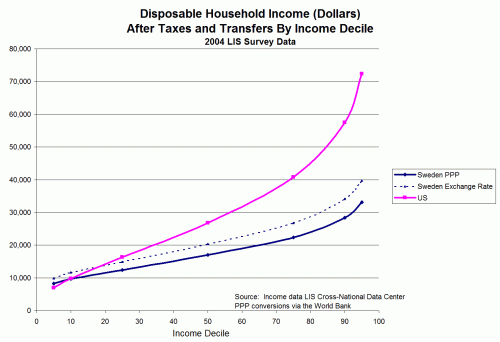The COVID Rorschach Test and the Split in Thinking That Divides America (the Sweden tribe vs. the Whitmer tribe)
If you want to get right down to the core of the disagreement on responses to COVID, this post by Kevin Drum illustrates it perfectly. Start with this:
My usual daily look at COVID-19 deaths was posted a few minutes ago, but I thought it might be worthwhile to also give you a quick look at COVID-19 cases. As you can see, they’re going up all over the place. Spain, France, and the Netherlands are skyrocketing. The United States skyrocketed back in July and looks like it’s now turning upward for a third time. The UK is going up, and so was Switzerland until a week ago, when it suddenly slammed the brakes on. Even Germany is rising a bit.
If we weed out exaggerated language like "skyrocketing" and ignore things like testing sensitivity and frequency, this statement is largely true. The difference is how people interpret it, and the world splits into the Whitmer clan and the Sweden clan. Drum speaks for the Whitmer tribe:
it sure looks as if even a modest re-opening quickly causes cases to boil over. ... Still, it’s obvious that we shouldn’t let up. The only way to keep cases and deaths down is to rigorously maintain social distancing precautions. If only we could get our president to agree.
For Drum and the Whitmer tribe, evidence that loosening of harsh lockdowns is followed by increasing COVID cases is proof that we should never stop lockdowns, at least until everyone is vaccinated with a vaccine that does not exist, may not exist, and will not exist for most of us until well into next year.
For those of us in the Sweden tribe, we come to exactly the opposite conclusion from the same evidence: that lockdowns only pointlessly drag out the pandemic and artificially increase its costs, since no matter how long we hide, the disease is still there to infect us when we come out. As I wrote last week:
All lockdowns do is delay the onset of the disease, not avoid it, and thus add severe economic dislocation, increased poverty, domestic violence, alcoholism, suicide and any number of other negative lockdown effects to the inevitable toll of the disease. If we are doing anything at all to affect the course of the disease, we are stretching out the misery.
I go on to write that lockdowns make protection of the vulnerable harder. I have two examples -- my 85+ year old mother-in-law and a bunch of immune compromised kids we support via Care Camps. In both cases it's easy to keep them locked away for a few months. But what happens when that stretches to 7 months? Does my mother-in-law want to spend her all too precious remaining days locked inside? Are we helping sick kids by essentially imprisoning them alone?
This may sound over-the-top, but I could argue that it is the duty of all of us who are under 60 and in good health to go out and risk exposure to the disease and get our society to herd immunity so the vulnerable can be safe and stop self-incarcerating. I say this knowing the Mr. Drum may be among the immune compromised and particularly vulnerable.
My Now-Standard COVID Postscript: I am not a fan of "check your privilege" retorts, but if one accepts that framework for a moment, one might notice just how privileged the exhortation to "Lock down, work from home, and stay in touch with friends over Zoom" really is. Listen to the folks rooting for lockdowns and you will find that the vast majority
- have professional jobs that can be done from home
- continue to get paid even when they don't work at all (e.g. teachers and politicians)
- have a lot of savings
A large number also tend to ignore the rules they foist on everyone else.
Update: I am still working on data, but the declaration of second and third waves is often BS. In most cases, these so-called second waves are the first waves in areas that were not affected earlier. New York has had one wave. Arizona has had one wave, just later. Louisiana has had two waves, but it is a unique case due to the timing of Mardi Gras.




